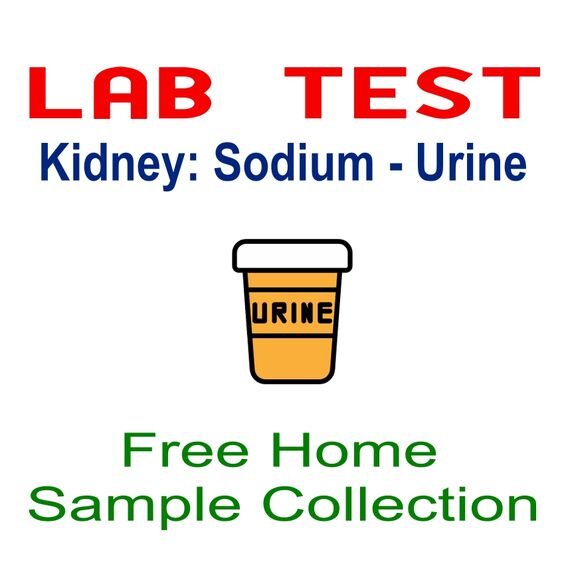This test is aslo known as...............
The mineral sodium is used in every cell of your body. It’s especially important for the function of your nerves and muscles.
The sodium urine test is a usual part of routine health screening used to determine whether your sodium level is within normal limits. Elevated or depressed amounts of sodium in your body can have many adverse health effects ranging from as minor as thirst to as serious as a coma in incredibly severe cases. Monitoring the healthy level of this essential mineral is incredibly important to your overall health.
Also, the sodium urine test is ordered when you have abnormal sodium in your blood.
Low levels of sodium in your urine may indicate kidney problems or hyponatremia.
The symptoms of low levels of sodium (Hyponatremiain) in your blood are as below:
- fatigue
- nausea and vomiting
- headache
- loss of appetite
- confusion or disorientation
- hallucinations
- loss of consciousness or coma
The symptoms of low levels of sodium in urine are as below:
- cirrhosis
- congestive heart failure (CHF)
- diarrhea
- excessive sweating
- high levels of the hormone aldosterone
- kidney damage, such as glomerulonephritis, hepatorenal syndrome, or kidney failure.
The symptoms of high levels of sodium (hypernatremiain) in blood are as below:
- Coma
- Fatigue
- Insomnia
- Rapid heartbeat
- swelling in hands and feet
- Thirst
- Weakness
The causes of high sodium in the urine may be due to:
- High-sodium diet
- Certain medications, such as diuretics
- Problems with adrenal gland function
- Salt-losing nephropathy, or Bartter syndrome
Input your data
If you have abnormal sodium levels in your blood then you will be recommended for a urine sodium test which can aid to identify and observe the causes and conditions that affecting the kidneys or adrenal glands & accordingly to guide the treatment.
Urine sodium test can find out whether you’re drinking an insufficient or excessive amount of water.
Your healthcare provider may also order this test based on the following conditions:
- Hypertension (high blood pressure), when the pressure in your blood vessels is too high (140/90 mmHg or higher)
- Prerenal azotemia, a kidney disorder marked by high levels of nitrogen waste in the blood
- Glomerulonephritis, a type of inflammatory kidney damage
- Hepatorenal syndrome, a type of kidney failure in people with cirrhosis (which is scarring of the liver)
- Medullary cystic kidney disease (MCKD), a genetic disease of cysts in the kidneys
- Acute kidney tubular necrosis, a condition in which the tubules of the kidneys are damaged or dying.

Normally no special preparations required for a sodium test. However take the advise of your healthcare provider.
None
Same day or next day
A blood sample drawn from a vein in your arm known as "Vanipuncture".
Sample report in a format
No reviews found




